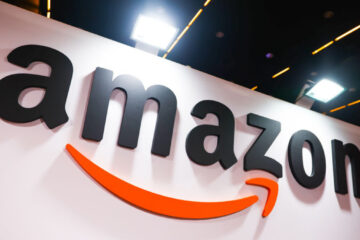Fast food restaurants are warning investors that the conflict between Russia and Ukraine could hurt business.
When the first McDonald’s (MCD) – Get McDonald’s Corporation Report opened in Russia in 1990 the symbolism was thick.
American style capitalism had officially defeated Soviet style communism with McDonald’s, a paragon of post-World War II America, planting a flag in the former Soviet Union.
That first Mickey D’s opened the door for innumerable U.S. food and entertainment businesses to find new homes in Eastern Europe after the Soviet empire crumbled.
Now, more than 30 years later, Russia has invaded one of its former satellites and the businesses that have adopted the area as home are facing an uncertain future as tensions with Ukraine flare.
Fast Food in the Former USSR
McDonald’s gained 9% of its revenue last year from Ukraine and Russia, according to a company filing.
Unlike its franchisee-focused approach in the U.S., about 84% of its 847 locations in Russia are company-owned. All of the 108 McDonald’s restaurants in Ukraine are owned by the company.
Combined, those restaurants accounted for $2.1 billion in revenue for the company last year.
But since Russia launched an attack on its neighbor to the east, Western countries have responded with tough sanctions. Along with the war, these sanctions could disrupt how American companies do business in Russia.
In the past, Russia has punished U.S. companies when the West places sanctions on the country.
In 2014, shortly after Moscow annexed Ukraine’s Crimea region in 2014, Russia President Vladimir Putin closed four McDonald’s restaurants in the country’s capital over what he said were sanitary violations.
McDonald’s did not immediately return a request for comment about whether Russia is pressuring it now.
Fast Food in Russia
Yum! Brands, the parent company of KFC, Taco Bell and Pizza Hut, has more than 1,000 locations in Russia.
The Russia, Central and Eastern Europe market accounted for 8% of KFC system sales, the fourth most amount behind China, the U.S. and Asia.
But those sales could be in danger if tensions continue to rise, the company said in its 10-K filing.
“Escalating tensions between Russia and Ukraine and any potential military incursion of Russia into Ukraine could adversely impact macroeconomic conditions, give rise to regional instability and result in heightened economic sanctions from the U.S. and the international community,” Yum! Brands said in the filing.
“[That could happen] in a manner that adversely affects us and our Concepts’ restaurants located in Russia and Eastern Europe, including to the extent that any such sanctions restrict our ability in this region to conduct business with certain suppliers or vendors, and/or to utilize the banking system and repatriate cash,”
Meanwhile, Burger King parent company, Restaurant Brands International QSR, which has about 550 locations in Russia, echoed similar statements in its own annual filing last week.
“The conflict between Russia and Ukraine could adversely impact economic conditions and demand for dining out as well as result in heightened economic sanctions from the U.S., Canada and other countries in a manner that may adversely affect us and our franchisee’s restaurants located in Russia and Eastern Europe,” QSR said.


